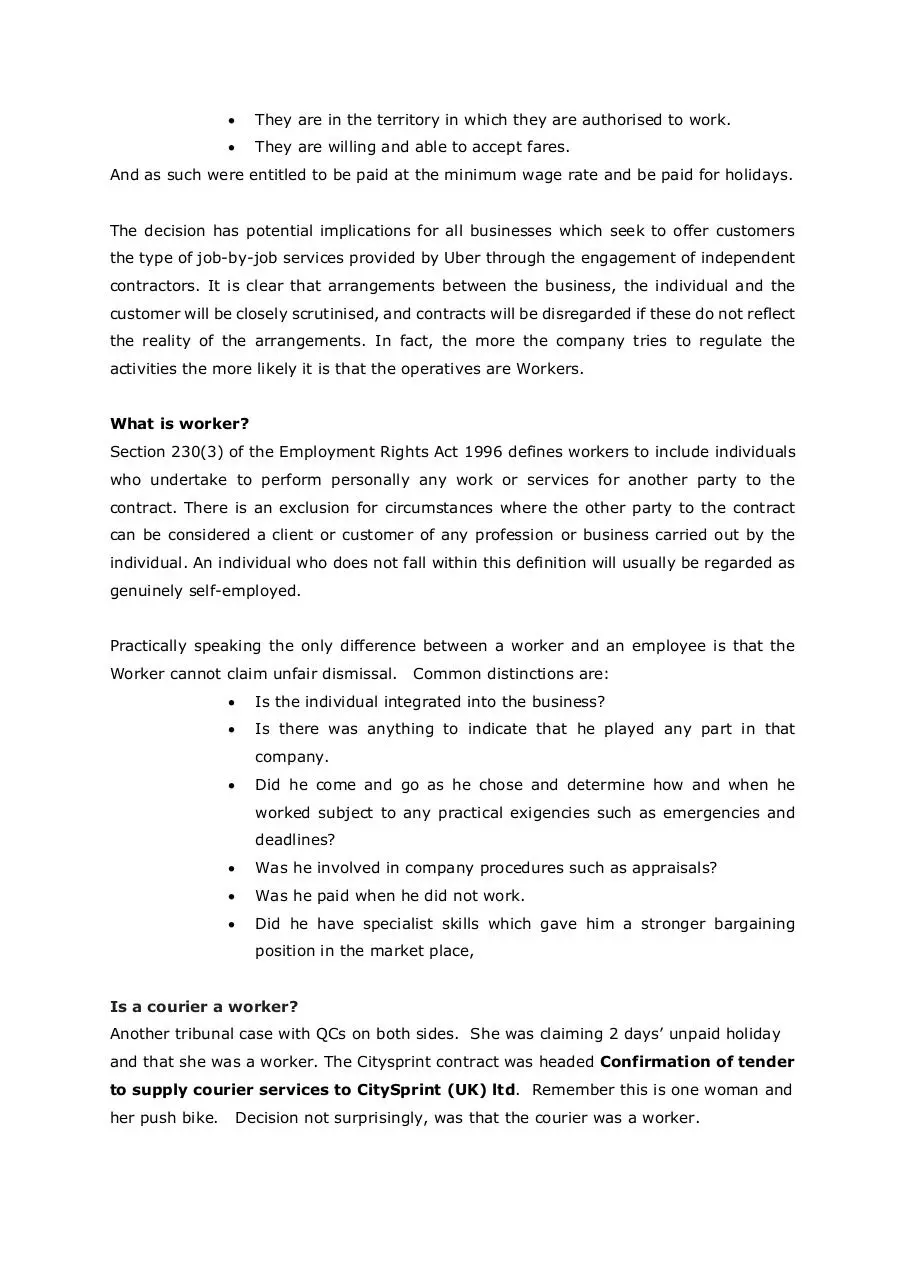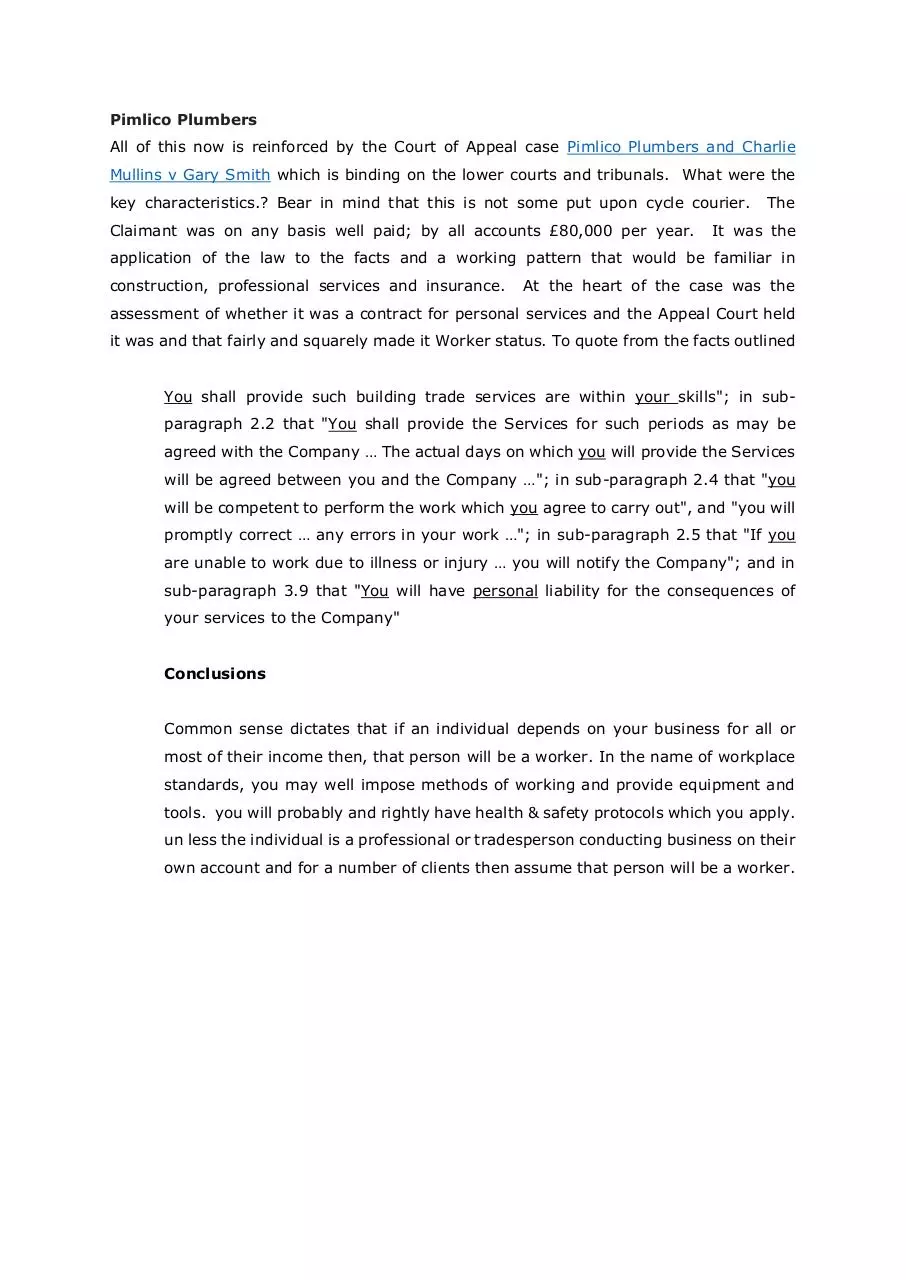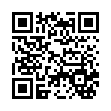BF Report February 2017 (PDF)
File information
Author: tonybertin
This PDF 1.5 document has been generated by Microsoft® Word 2016, and has been sent on pdf-archive.com on 10/02/2017 at 17:24, from IP address 78.33.x.x.
The current document download page has been viewed 241 times.
File size: 181.93 KB (3 pages).
Privacy: public file



File preview
February Report
The gig economy has been high on the agenda for some months now culminating in today’s
decision in the Court of Appeal in the case of Pimlico Plumbers and Charlie Mullins v Gary
Smith.
The Manak Employment Relations Breakfast Forum today at Côte Brasserie Bluewater
happened to be looking at the gig economy and the ramifications for employers.
At
Breakfast Time this morning the Pimlico decision had not been handed down but it was a
keen conversation point for our employers at the forum led by Tony Bertin.
The phrase gig economy has been taken as referring to freelancers taking assignments
using technology platforms like Über.
In fact, Uber BV (based in Holland) had been the
Respondent in a tribunal case in the Autumn whether it was held the drivers were
“workers” and, as such, were entitled to be paid at the Minimum Wage and receive Holiday
pay. Uber argued that they just offered a technology platform to their 40,000 drivers.
Uber's position was that it acts as an agent for the drivers through the use of the Uber
smartphone app, and that the contract for the provision of the taxi service was between
the individual Uber driver and passenger. As a consequence, Uber treated its drivers as
being genuinely self-employed, and therefore not entitled to the employment rights
applicable to workers.
The tribunal had little truck with that and analysed the key factors and found Über
Interviews and recruits drivers, and subjects them to an induction
process.
Controls the passengers' key information and does not share this with
the driver.
Requires drivers to accept fares, and it issues warnings and ultimately
locks drivers out of the app if too many fares are refused.
And found that the drivers were workers
They have the app switched on.
They are in the territory in which they are authorised to work.
They are willing and able to accept fares.
And as such were entitled to be paid at the minimum wage rate and be paid for holidays.
The decision has potential implications for all businesses which seek to offer customers
the type of job-by-job services provided by Uber through the engagement of independent
contractors. It is clear that arrangements between the business, the individual and the
customer will be closely scrutinised, and contracts will be disregarded if these do not reflect
the reality of the arrangements. In fact, the more the company tries to regulate the
activities the more likely it is that the operatives are Workers.
What is worker?
Section 230(3) of the Employment Rights Act 1996 defines workers to include individuals
who undertake to perform personally any work or services for another party to the
contract. There is an exclusion for circumstances where the other party to the contract
can be considered a client or customer of any profession or business carried out by the
individual. An individual who does not fall within this definition will usually be regarded as
genuinely self-employed.
Practically speaking the only difference between a worker and an employee is that the
Worker cannot claim unfair dismissal.
Common distinctions are:
Is the individual integrated into the business?
Is there was anything to indicate that he played any part in that
company.
Did he come and go as he chose and determine how and when he
worked subject to any practical exigencies such as emergencies and
deadlines?
Was he involved in company procedures such as appraisals?
Was he paid when he did not work.
Did he have specialist skills which gave him a stronger bargaining
position in the market place,
Is a courier a worker?
Another tribunal case with QCs on both sides. She was claiming 2 days’ unpaid holiday
and that she was a worker. The Citysprint contract was headed Confirmation of tender
to supply courier services to CitySprint (UK) ltd. Remember this is one woman and
her push bike.
Decision not surprisingly, was that the courier was a worker.
Pimlico Plumbers
All of this now is reinforced by the Court of Appeal case Pimlico Plumbers and Charlie
Mullins v Gary Smith which is binding on the lower courts and tribunals. What were the
key characteristics.? Bear in mind that this is not some put upon cycle courier.
Claimant was on any basis well paid; by all accounts £80,000 per year.
The
It was the
application of the law to the facts and a working pattern that would be familiar in
construction, professional services and insurance.
At the heart of the case was the
assessment of whether it was a contract for personal services and the Appeal Court held
it was and that fairly and squarely made it Worker status. To quote from the facts outlined
You shall provide such building trade services are within your skills"; in subparagraph 2.2 that "You shall provide the Services for such periods as may be
agreed with the Company … The actual days on which you will provide the Services
will be agreed between you and the Company …"; in sub-paragraph 2.4 that "you
will be competent to perform the work which you agree to carry out", and "you will
promptly correct … any errors in your work …"; in sub-paragraph 2.5 that "If you
are unable to work due to illness or injury … you will notify the Company"; and in
sub-paragraph 3.9 that "You will have personal liability for the consequences of
your services to the Company"
Conclusions
Common sense dictates that if an individual depends on your business for all or
most of their income then, that person will be a worker. In the name of workplace
standards, you may well impose methods of working and provide equipment and
tools. you will probably and rightly have health & safety protocols which you apply.
un less the individual is a professional or tradesperson conducting business on their
own account and for a number of clients then assume that person will be a worker.
Download BF Report February 2017
BF Report February 2017.pdf (PDF, 181.93 KB)
Download PDF
Share this file on social networks
Link to this page
Permanent link
Use the permanent link to the download page to share your document on Facebook, Twitter, LinkedIn, or directly with a contact by e-Mail, Messenger, Whatsapp, Line..
Short link
Use the short link to share your document on Twitter or by text message (SMS)
HTML Code
Copy the following HTML code to share your document on a Website or Blog
QR Code to this page

This file has been shared publicly by a user of PDF Archive.
Document ID: 0000552280.